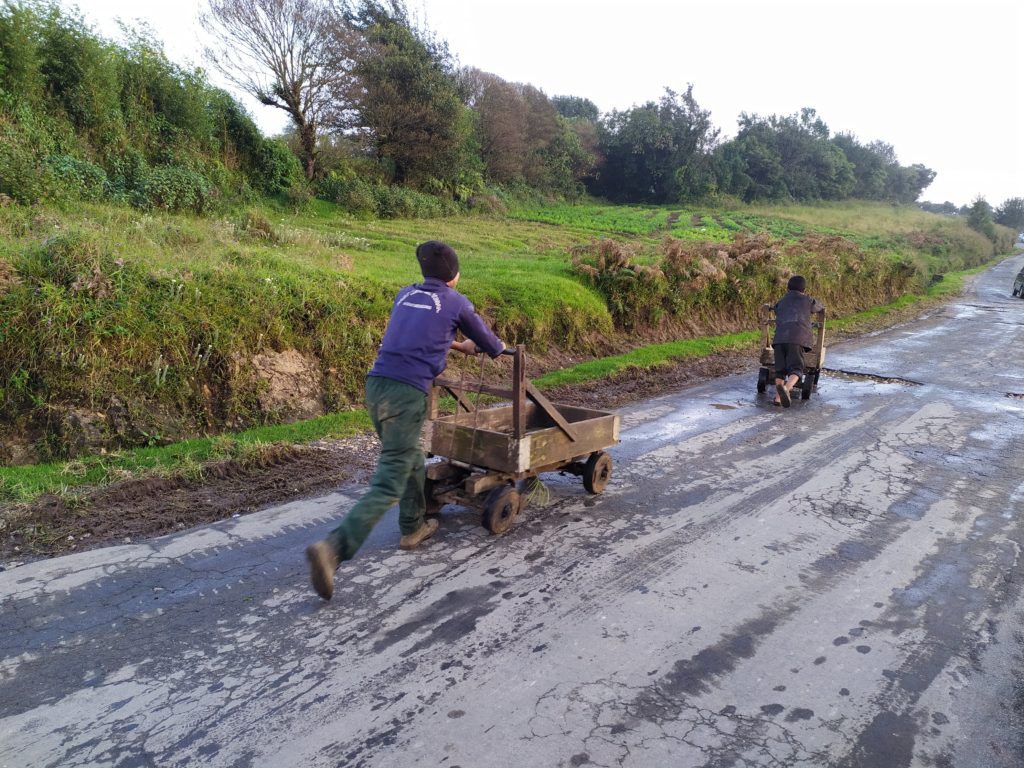Imagine a world, where a man follows his wife to her home after marriage, where the youngest daughter inherits all the properties and where children inherit their mother’s family name. A community where daughters are celebrated, where women head the family and where girls are educated without giving it an afterthought. Now stop imagining, for it is real. This is the norm, taken for granted customs in “the abode of clouds”, i.e, Meghalaya.

The Khasi people meaning, “Children of the Seven Huts”, are an indigenous ethnic group of Meghalaya. The Khasi people are the native people of Meghalaya and are the largest ethnic group in the state.
When our kind driver Mr.Kamal explained all this to us, we were nothing short of being shell shocked. We thought he is making it up. It took us a while to let those facts sink in. He also told some other interesting tidbits about Khasi. That they OCD on cleanliness, and we were witnessing it right in front of us – the clean roads, crystal clear streams running in everybody’s backyard, and lines of clothes hung every morning. Mr. Kamal said that just like how most of us automatically wake up and brush our teeth, Khasi people wake up and wash their clothes. No matter how chilling cold the weather is, I could see collages of clothes, neatly hung, in the front yard of everybody’s house every morning. Khasi people are very particular about hygiene, be it personal or social. The proof is- Asia’s cleanest city – Mawlynnong – is in Meghalaya. The local Villagers proactively clean their villages together every Sunday.
Because Khasi is Matriarchal- the rates of crime against women are extremely low. I could see young girls and women roaming the streets in the dark alone without any fear of any attack. I, as a woman myself, found this place almost utopian and liberating. It is the women, in Khasi, who are the breadwinner. Mr.Kamal said, “Khasi women are very strong “. No doubt about it. He said there is no concept of “arranged marriage” here. Everyone has to choose their own partner. However, is there a downside to this? I wondered. I asked Mr.Kamal “What about men?”. He laughed and said, “Men have their own responsibilities. They must look after the house. They must look after the children, cook, wash and clean the house”. This is a complete flip from how the world normally functions right?. He continues, “They get 200rs from their wives at the end of the day, so that they can go and hit the bar with their friends”. What do I have to say now? Did I by any chance walk through a tunnel that transported me to a different universe? I wanted to know more, like, was there any male foeticide? What about the boy’s education? Mr.Kamal said that no infants or fetuses are killed based on gender, but girls are more qualified than boys in education because men’s education isn’t given much importance. However, everybody gets to go to school. So there is an almost 100% literacy. After school, it is mostly daughters who are pushed into higher education. Woah. We all were gobsmacked. Is there anything else in the world that is more shocking?
Yes, there is. Our Airbnb host, Ms.Ann was worried about her two sons. She wanted to make them financially independent so that they don’t end up becoming “house-husbands”. She wanted to send them for higher education outside Meghalaya. She was also worried about boys being ill-treated by their future-mother-in-laws. (Why is it that Moms-in-laws are always the scary ones all around the world?) I almost choked on my sandwich when she said these things. I asked her if she had heard of sexual violence against women, to which she replied yes, but only on National news( that comfortably ignores this part of India). She too was surprised by the customs of the rest of the country. She too wondered why many girls, outside Meghalaya, were treated so badly. We both wondered and wondered about each other’s world, customs, and traditions.
As I was leaving Meghalaya, I realized that Matriarchy is better than Patriarchy (Of course I am biased, but also statistically speaking, crime rates are lower in this region in general, and also everyone is fairly educated), however, both have their own downsides. We all should learn to be empathetic enough to stand in each other’s shoes and come to a consensus to live together and respect each other and offer equal opportunities to everyone. After all women and men have been co-living for millions of years. Don’t we all think it’s time?
